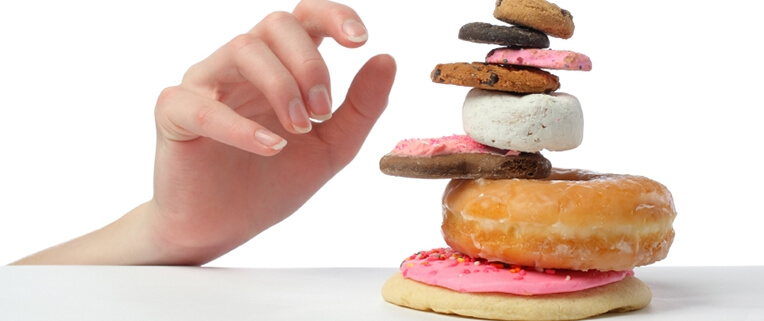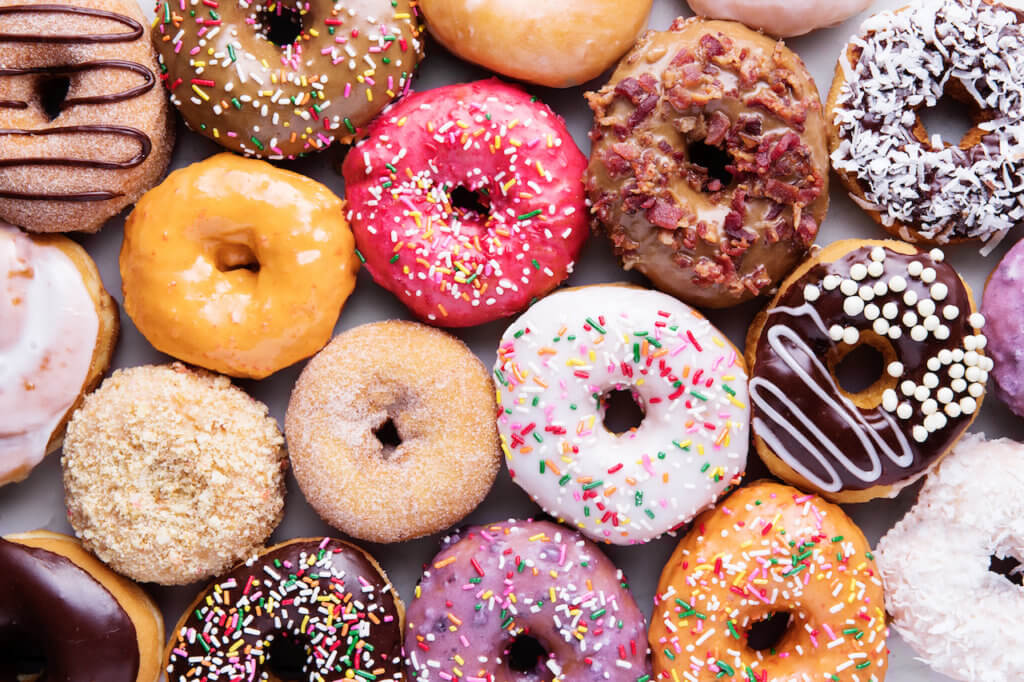Why do you cave to the crave?
For certain foods.
And then freak out.
I have many clients who struggle with cravings. . .meaning, they think they’re a bad thing and try hard not to have any.
Let’s begin by distinguishing between a true CRAVING and physiological HUNGER, aka, “normal” hunger you feel when lunchtime is near.
When you’re TRULY hungry, any food will do, as long as it has calories (energy). True physiological hunger is triggered by a decrease in blood sugar levels, a slight rise in insulin, or an empty stomach.
What that sensation of hunger feels like to you is as unique as you are. . .in my experience, everyone senses true hunger in a slightly different way.
True hunger is satisfied by an apple, carrot, peanut butter sandwich or cookie – you won’t feel too particular about which one, because you just want to stop feeling light-headed!
Cravings, on the other hand, are unique in that they’re for a PARTICULAR food, often one that’s fatty, heavy, sugary, junky.
Cravings are rooted in genetics and culture, as well as biological and neurological mechanisms.
That’s a high-level overview of the difference, and a background to build on in another post. (1)
For now, let’s look specifically at why you, a post-treatment survivor of hormone-driven breast cancer, become unnerved by a donut craving.
WHY YOU CAVE TO THE CRAVE
1. Cravings really do FREAK you out
* The food you crave doesn’t fit what you think you “should” be eating, so you second-guess and harshly judge your choice.
* You get anxious because you’re not craving broccoli, apples or whole grains.
2. Cravings make you feel POWERLESS
* You’ve been in your less-than-healthy eating habits for so long, you don’t realize “conscious eating” is even an option.
* You don’t look at what’s behind the craving; is it a time of day when your defenses are down, or you’re feeling vulnerable, exhausted or stressed?
3. Cravings come from YOU
* When you tell yourself you CAN’T eat that donut, you set up a cycle and thought pattern around deprivation. . .and think of little else but that donut.
* When you try to follow the “perfect” breast cancer diet, again, deprivation. All the foods NOT on your perfect food list are the foods that call to you, triggering cravings. (2)

WHAT YOU CAN DO
While cravings are impacted by your biology and physiology, it doesn’t mean you’re destined to be powerless around food.
A few tips to manage your cravings:
- Try to eat before you get too hungry.
- Learn to identify when you’re truly hungry – what are the signals unique to you that say “feed me!”?
- Recognize that food marketers and the food industry go to great lengths and expense to trigger and manipulate your cravings for junky food and huge portions – irrespective of the signals your body sends.
- Learn to look at all food as NEUTRAL, rather than good or bad. When you give yourself unconditional permission to eat ANYTHING, yet intentionally choose whole foods that make you FEEL good, food cravings tend to subside AND (bonus), loses its power.
Now, tell me below. What foods do YOU crave, and how will you use this information to feel less powerless around those foods?
______________________________________________________________________________
Thanks for reading my blog post!
I help post-treatment survivors of hormone-positive breast cancer end food fear, confusion and overwhelm, eat without stress and guilt, and rebuild their health so they can do the things they enjoy with the people they love.
I’m a registered dietitian, personal trainer, nutrition therapist and coach, speaker, and survivor of hormone-positive breast cancer.
Ready for professional support to rebuild your health and gain peace of mind?
Click this link and watch my HEALTH REBUILD video!
Get my FREE Lifestyle Choices Matter! Get Started Guide here
Follow me on Instagram @hormone.breastcancer.dietitian
This information is for educational purposes only and is not intended as medical advice. Please consult your dietitian or doctor for guidance specific to your needs.
_______________________________________________________________
References:
1. The Neuroscience of Cravings
2. The Psychology of Food Cravings: the Role of Food Deprivation


